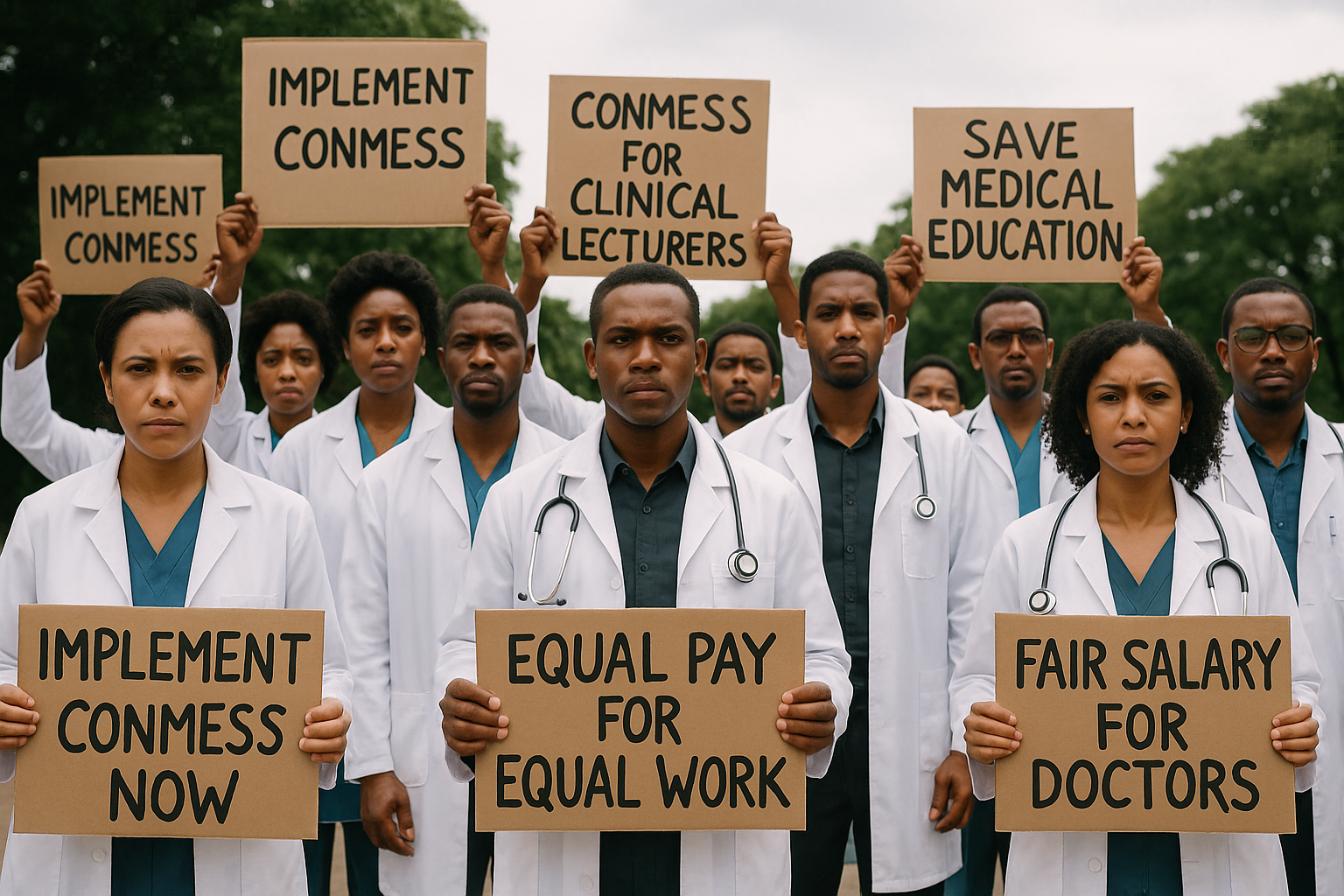Medical education in Southwest Nigeria stands on the brink of collapse due to the continued non-implementation of the Consolidated Medical Salary Structure (CONMESS) for medical and dental lecturers.
On 14th December 2024, Medical and Dental lecturers at the first medical school in Nigeria, College of Medicine of the University of Ibadan embarked on an indefinite strike to protest failure of the institution to adopt the CONMESS by the premier university. The problem is however not isolated to Ibadan, it reflects the reality across public medical schools in the region.
The CONMESS was approved in 2008 as a separate salary structure for medical and dental officers to reflect the unique demands and contributions of clinical academics and professionals but while it has been implemented in other parts of the country, it largely remained unimplemented in the Southwest. Instead, the medical lecturers have been placed on the Consolidated University Academic Salary Structure (CONUASS) which has led to substantial financial loss and stunted career progression.
The lecturers in a press release by their Union, Medical and Dental Consultant Association of Nigeria (MDCAN) Southwest Zone, gave a 21-day ultimatum on 13th January 2025, demanding full CONMESS implementation. In the press statement signed by its Zonal Chairman, Dr Abdulkareem Salawu, the Union decried the short-payment of the lecturers and lack of parity with colleagues in other zones.
However, with nothing done till the expiration of the ultimatum, medical lecturers at Obafemi Awolowo University, University of Lagos, Osun State University, Ladoke Akintola University of Technology amongst others joined the industrial action on 3rd February, 2025.
While medical schools owned by state governments resumed promptly even when the issues were not fully resolved, University of Lagos and the Obafemi Awolowo University wouldn’t resume until April 2025.
The Impact of the Strike Action
The industrial action contributes to worsening brain drain, disrupted academic calendars, delayed graduations. Medical lecturers continue to seek greener pastures abroad, compunding existing healthcare manpower crises in the country.
Students face uncertainty about their academic and future and a delayed entry into the workforce deepens the strain on the country’s health system already grappling with a shortage of professionals.
While clinical and academic activities have resumed in other places, the premier medical school in Ibadan remain closed more than four months after their strike began. The continued shutdown threatens to erode the legacy of Nigeria’s oldest medical school.
It has become important to speedily implement the CONMESS Policy for clinical lecturers in the Southwestern part of the country as it has been done in other parts of the country to save what is left for the medical education system in the region.
The lecturers merely suspended the strike action in most schools based on promises made by the University administrations, Dr Salawu had vowed in an interview that the strike would resume if payments are not made by the end of April 2025.
Immediate Steps to Resolve the Crises
To prevent a total collapse of clinical training in Southwest Nigeria, urgent steps must be taken in line with Section 3 of the Federal Government’s National Policy on Health Workforce Migration which emphasizes the need for an adequate, equitably distributed, and well-motivated health workforce.
The state and federal governments must immediately ensure the full implementation of CONMESS for clinical lecturers across all institutions in the region. This will ensure uniformity with other regions and prevent further inequities that demoralize medical educators and disrupt academic progression.
The management of the University of Ibadan must act swiftly to engage striking lecturers in meaningful dialogue as successfully done at the University of Lagos and Obafemi Awolowo University. The continued closure of Nigeria’s premier medical school poses a serious risk to the future of medical education in the country.
Beyond negotiation, the university must take practical steps to honor previously made commitments and disburse outstanding entitlements. Any further delay could worsen the healthcare manpower crisis.It is also essential that the Federal Ministries of Education and Health intervene jointly, not only to ensure resolution at Ibadan but to institutionalize a transparent mechanism for monitoring salary structure compliance across all public medical schools.
Failure to implement CONMESS in the Southwest is a threat to the future of the healthcare system not just in the region but the country at large. Resolving this issue immediately is critical to restoring confidence in medical education, retaining competent health professionals, and sustaining public trust in government institutions.

